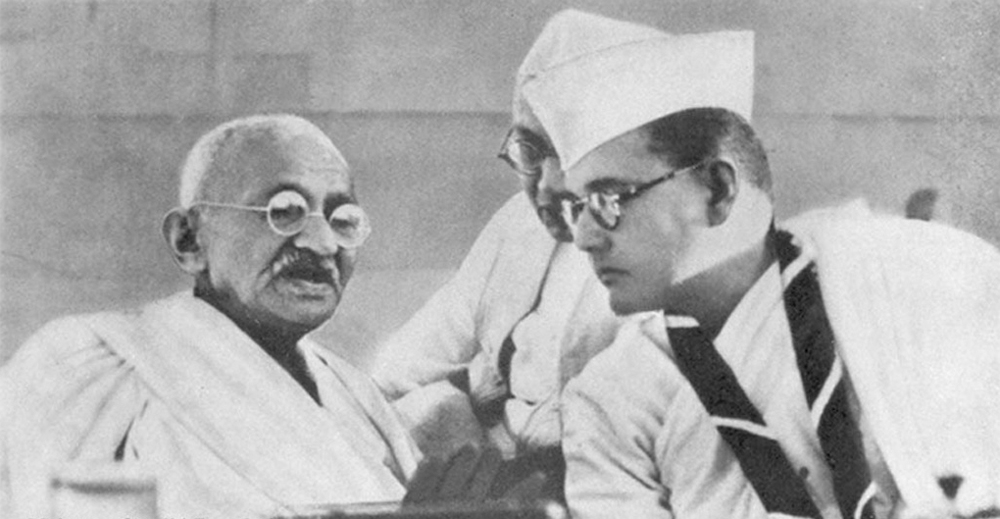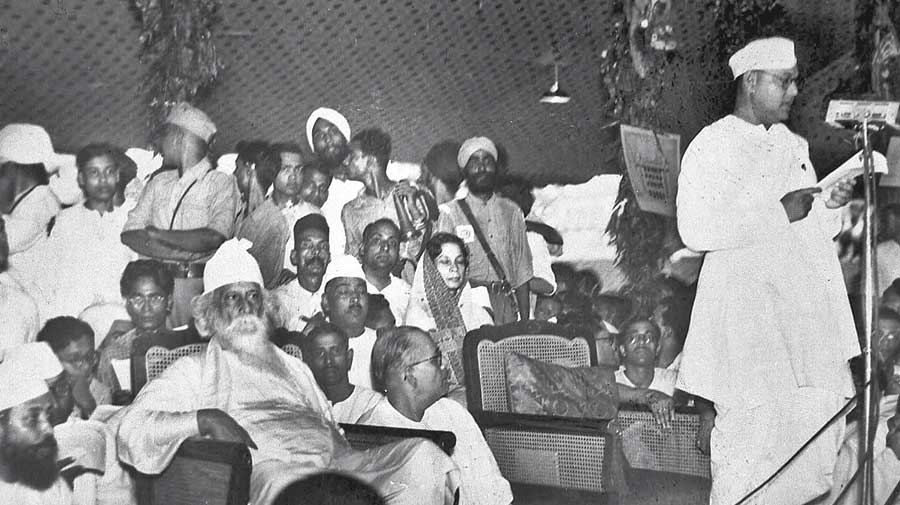“If culture, civilisation, administration, and economic prosperity were possible before British rule, they will also be possible after British rule,” declared Subhas Chandra Bose in his two-part book, The Indian Struggle: 1920-1942. There is no doubt that Bose’s contributions were significant to emancipating India from British imperialism. Could this fierce nationalist, who is being appropriated for political mileage nowadays, have been even more instrumental to Indian history had he served as India’s first prime minister?
On October 21, 1943, Bose announced the formation of the provisional government of Azad Hind in Japanese-occupied Singapore, anointing himself as head of state, minister for war and foreign affairs, and prime minister. The adoption of the third title by Bose has led many of his admirers to argue that Bose, and not Jawaharlal Nehru, was the first prime minister India ever had. It was Nehru who undertook the first prime ministership of an independent India. But what if he hadn’t?
In The Indian Struggle, Bose writes of how independent India would have “a strong Central Government... [how] [t]he state will... unify the whole nation and all methods of propaganda... will have to be utilised...” In a speech delivered in Singapore in 1943, Bose had made his administrative aspirations even clearer by asserting that India would require an “iron dictator” who could rule for at least two decades.
Unlike the democratic idealism of Nehru, who had an unflinching faith in constitutional process, Bose, as a benevolent dictator, may have concentrated most of the power in his hands through a mixture of “Fascism and Communism”, with the aim of making India economically self-sufficient, before bedding in the democratic foundations that had been the opening gambit of the Nehruvian quasi-federal model.
In The Indian Struggle, Bose imagines a new party for independent India — the Samyavadi-Sangha — which would dominate the political landscape like a colossus, functioning as a “well-organised, disciplined all-India party... the chief instrument for maintaining national unity.” Bose’s Sangha would provide “perfect equality” in terms of political and economic rights, endorse no State religion, thereby allowing “complete religious and cultural freedom”, and strive to eradicate poverty and unemployment by means of “industrialisation and scientific agriculture through state aid”. The Sangha’s tentative manifesto reflects many of the primary features of what is now understood to be Nehruvian socialism and secularism. This raises the obvious question — with similar ideals but different tools, would the Congress have survived in the India of the Sangha? Would Bose have pivoted to free and fair elections by dissolving or disempowering the Sangha, or would he have let the Sangha retain its political leverage while simultaneously allowing other political actors to rise to prominence?
India under Bose may not have seen the kind of social suppression that dictatorships are usually associated with. The Indian Struggle confirms Bose’s faith in a secular State where minorities do not become second-class citizens. Bose’s India may also have industrialized faster than it did under Nehru, achieving Bose’s target of a rapid rise in the standard of living and an ‘increase in consumption by leaps and bounds’. However, Bose’s obsession with socialism and concentration of power may have set the wrong precedents for independent India. The image of Bose as omnipotent and omnipresent would have legitimized more authoritarian personalities with less noble intentions to succeed him. When the democratic mechanisms installed by Nehru could not prevent an Emergency proclamation by his daughter, Indira Gandhi, or foresee the rise of political strongmen like Narendra Modi, it is likely that Bose’s benevolent dictatorship would have spawned powerful leaders governing an increasingly weak country.
History tells us that a single individual does not usually preside over both revolution and reconstruction with the same success. While Bose certainly had the competence and the conviction to prove an exception to this humbling rule, given the precarious circumstances at the time of Indian independence and his own modus operandi, few would have bet in his favour.
Nehru, for all his shortcomings, offered a utopian yet enduring idea of India, one that in its syncretic and democratic roots remains imperfect yet imperative to what India is today. Bose, for all his qualities, would have offered a compelling but chaotic idea of India, one which in its conflict between short-term necessities and long-term ideals would have fundamentally altered what India is today.











